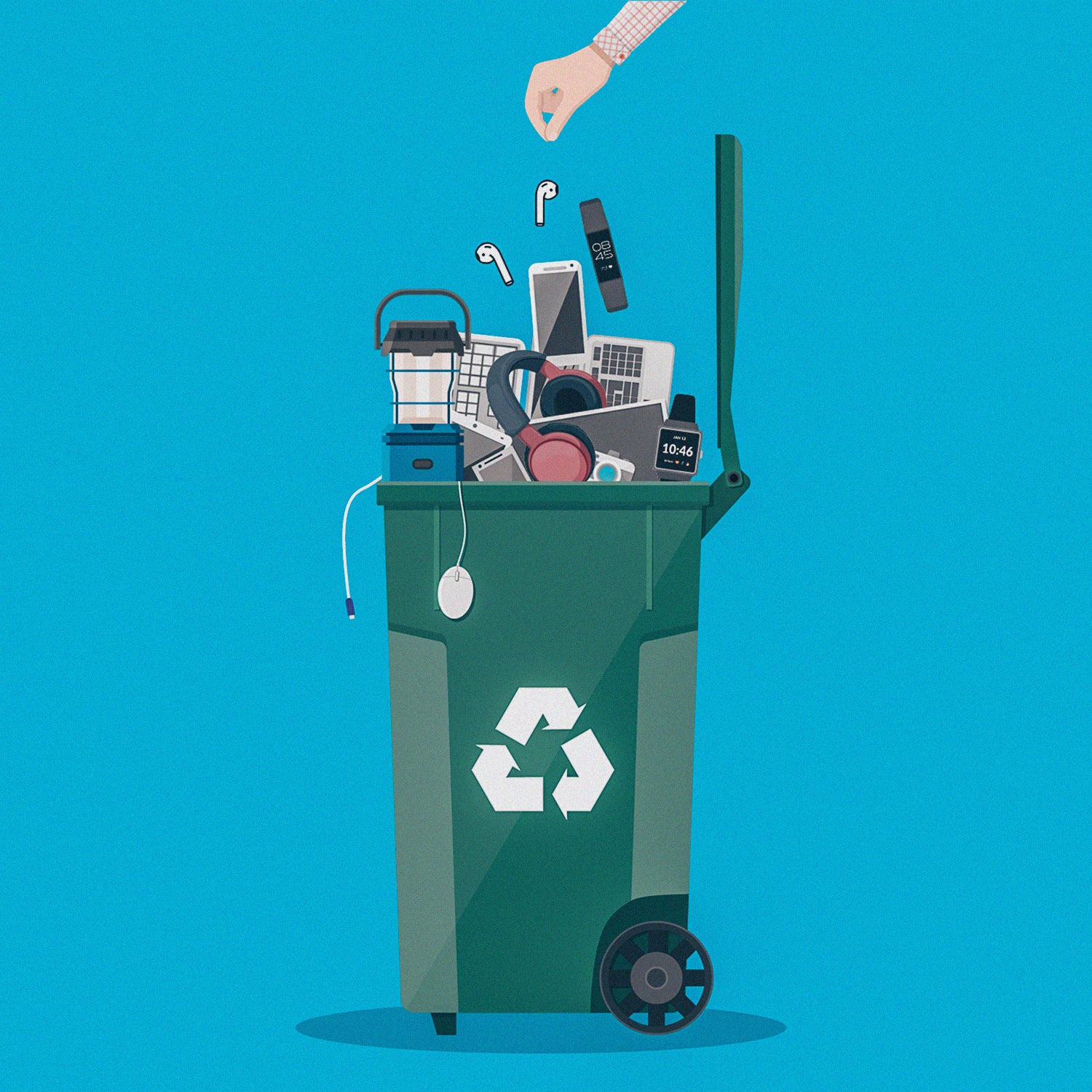R2 Certification: The Mark of Quality in Electronics Recycling
R2 Certification: The Mark of Quality in Electronics Recycling
Blog Article
Elevate Your E-Waste Administration With R2 Qualification: a Thorough Introduction
One key approach to raise e-waste administration practices is by acquiring R2 certification. By exploring the benefits and processes associated with R2 accreditation, a much deeper understanding of exactly how it can change e-waste administration methods emerges, losing light on a path towards sustainability and moral disposal techniques.
Significance of E-Waste Management

When e-waste is not taken care of appropriately, these hazardous compounds can seep into the community, triggering damage to wild animals and potentially entering the food chain, presenting threats to human health. The inappropriate disposal of e-waste contributes to pollution and greenhouse gas exhausts, worsening environment modification and environmental deterioration.

Advantages of R2 Qualification

To start with, R2 accreditation improves integrity by showcasing an organization's devotion to lasting techniques. It ensures clients, partners, and stakeholders that the firm abides by strict criteria for e-waste management - r2 certification. This reputation can result in increased trust fund and boosted connections with customers who prioritize ecological duty
Secondly, R2 qualification helps minimize dangers related to improper e-waste disposal. By complying with the stringent guidelines established forth by the accreditation, organizations can reduce the likelihood of information violations, environmental contamination, and legal effects. This proactive method safeguards the company's credibility and minimizes potential obligations.
Finally, R2 certification shows a dedication to environmental stewardship - r2 certification. By sensibly handling digital waste with certified processes, organizations contribute to the conservation of resources, reduction of pollution, and promotion of a round economic situation. This commitment not just benefits the environment but additionally straightens with evolving customer expectations for lasting business techniques
R2 Qualification Refine Summary
Having actually established the advantages of R2 accreditation in promoting trustworthiness, risk mitigation, and ecological stewardship, it is necessary to now detail the in-depth process entailed in getting this accreditation. The R2 qualification procedure begins with a detailed evaluation of the organization's functional policies and treatments to guarantee compliance with the R2 criterion. This preliminary assessment is important in identifying any type of gaps that need to be addressed before continuing additionally.
As soon click for more as the organization's practices align with the R2 basic demands, an independent third-party auditor carries out an on-site audit to review the execution and effectiveness of these techniques. This audit consists of a thorough testimonial of documentation, interviews with team, and physical assessments of facilities to validate conformity.
Adhering to a successful audit, the organization gets an accreditation choice based on the auditor's findings. If accepted, the company is given R2 qualification, showing its commitment to responsible e-waste monitoring. It is crucial to keep in mind that preserving R2 qualification calls for continuous compliance with the standard's demands and routine audits to ensure continued adherence to ideal methods in e-waste recycling and disposal.
Key Criteria for R2 Compliance
A necessary facet of attaining R2 conformity is ensuring that all digital waste (e-waste) processing centers satisfy strict environmental and safety and security requirements. To abide by R2 requirements, organizations have to abide by crucial criteria that focus on responsible e-waste management methods. These standards consist of carrying out a recorded environmental, health, and security management system, making certain the secure handling of data-containing gadgets, and conducting comprehensive downstream due diligence to track the final location of e-waste products.
In addition, R2 compliance requires the proper screening, repair, and recycling of digital equipment to prolong its useful life and minimize environmental influence. Facilities seeking R2 qualification need to my website likewise prioritize worker health and wellness and security by offering necessary training, individual protective equipment, and a safe workplace. Furthermore, preserving in-depth records of e-waste handling activities and routinely going through audits by certified licensing bodies are vital parts of demonstrating ongoing conformity with R2 standards.
Impacts of Sustainable E-Waste Practices
The implementation of lasting e-waste methods according to R2 compliance not only ensures ecological and safety criteria are met however likewise significantly affects the overall lifecycle of electronic items. By sticking to R2 standards, electronic waste management procedures become much more reliable, minimizing the ecological impact of electronic products. Lasting e-waste practices assist in the appropriate disposal of digital elements, making sure that hazardous materials are dealt with properly and do not wind up polluting the setting.
Furthermore, sustainable e-waste practices can add to task production in the recycling additional resources and refurbishment markets, cultivating economic development while promoting ecological obligation. In general, the fostering of lasting e-waste methods under R2 qualification serves as a vital step in the direction of accomplishing a more environmentally lasting electronics industry.
Final Thought
To conclude, executing appropriate e-waste management techniques is vital for environmental sustainability and resource conservation. R2 qualification plays an essential function in making certain liable handling and disposal of digital waste. By sticking to the strict criteria established forth by R2 requirements, organizations can not only lessen their environmental impact yet likewise contribute to a much more lasting future for generations to come.
One key approach to raise e-waste administration techniques is by attaining R2 accreditation. By discovering the benefits and processes associated with R2 certification, a much deeper understanding of exactly how it can transform e-waste management techniques emerges, losing light on a path in the direction of sustainability and honest disposal methods.
The R2 accreditation procedure starts with an extensive review of the organization's functional plans and treatments to make sure conformity with the R2 standard. If approved, the organization is provided R2 qualification, showing its dedication to responsible e-waste administration. Overall, the fostering of lasting e-waste methods under R2 certification serves as a vital action in the direction of attaining a more environmentally sustainable electronic devices sector.
Report this page